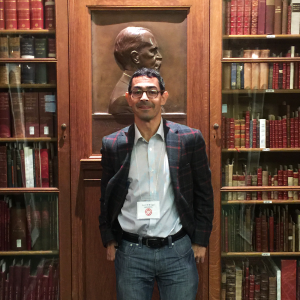Takeaway
The journey to mastery is long and full of setbacks. In clinical medicine, a commitment to excellence is a worthy goal; missteps represent growth opportunities, not failures.

Lifelong Learning in Clinical Excellence | April 28, 2022 | 2 min read
By Scott Wright, MD, Johns Hopkins Medicine
“The Rise” was a great read. It may not be all that different from others that point out the value of “failing.” What’s unique and interesting is the breadth of the individuals sharing their stories, both in terms of their pursuits (from artist to archers to explorers and more), and the diversity of backgrounds.
For poetry lovers, I share a favorite poem that I think about every time things don’t work out well for me (thus, not infrequently):
I walked a mile with Pleasure;
She chatted all the way;
But left me none the wiser
For all she had to say.I walked a mile with Sorrow,
And ne’er a word said she;
But, oh! The things I learned from her,
When sorrow walked with me.-Robert Browning Hamilton
Lewis explains that the word failure shouldn’t be applied to creative pursuits. She further asserts that failure shouldn’t be considered an outcome but rather a consequence of a singular attempt to arrive at specified goal.
The overarching message in this book is that it’s preferable to adopt the “can do” attitude and approach when confronting challenges; we should expect that tremendous effort over a prolonged period will be required to achieve anything great, with many bumps in the road.
Here are the analogies to clinical medicine that came to mind as I was reading:
1. Practice is necessary.
Any time we have the chance to practice with role play, standardized patients, or in simulation centers, we should jump at the opportunity.
2. A great coach will alert us to blind spots.
Having a trusted observer who is highly skilled watch your performance and give you candid feedback is indispensable. This isn’t done enough as part of UME, GME, or CME.
3. Near misses can be motivating.
“Almost” being selected for a leadership position, award, grant, or having your paper accepted in a preeminent journal can serve as provocative inspiration that allows you to succeed on your next attempt. It often takes years of plugging away to have a breakthrough, especially when trying to innovate.
4. Difficult patient encounters may occur but will not necessarily recur.
Relationships and interactions with patients aren’t always perfect. With reflection and the passage of time, these partnerships often improve.
This piece expresses the views solely of the author. It does not necessarily represent the views of any organization, including Johns Hopkins Medicine.

